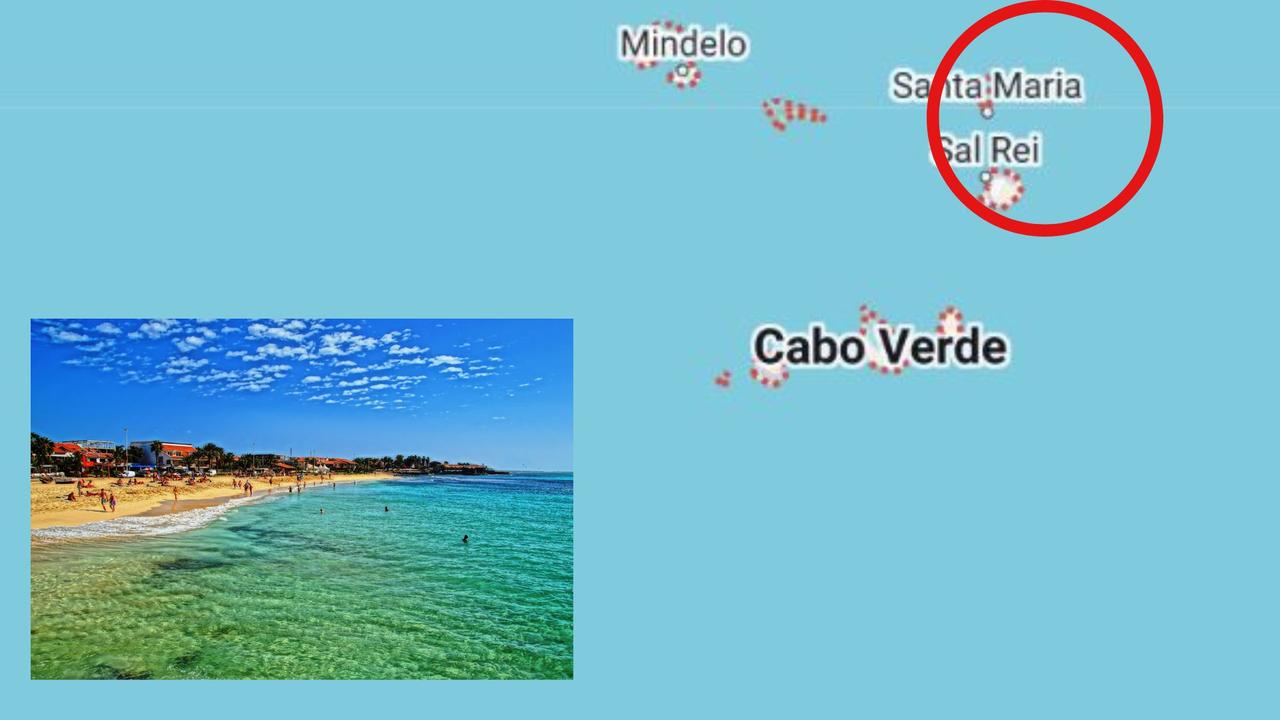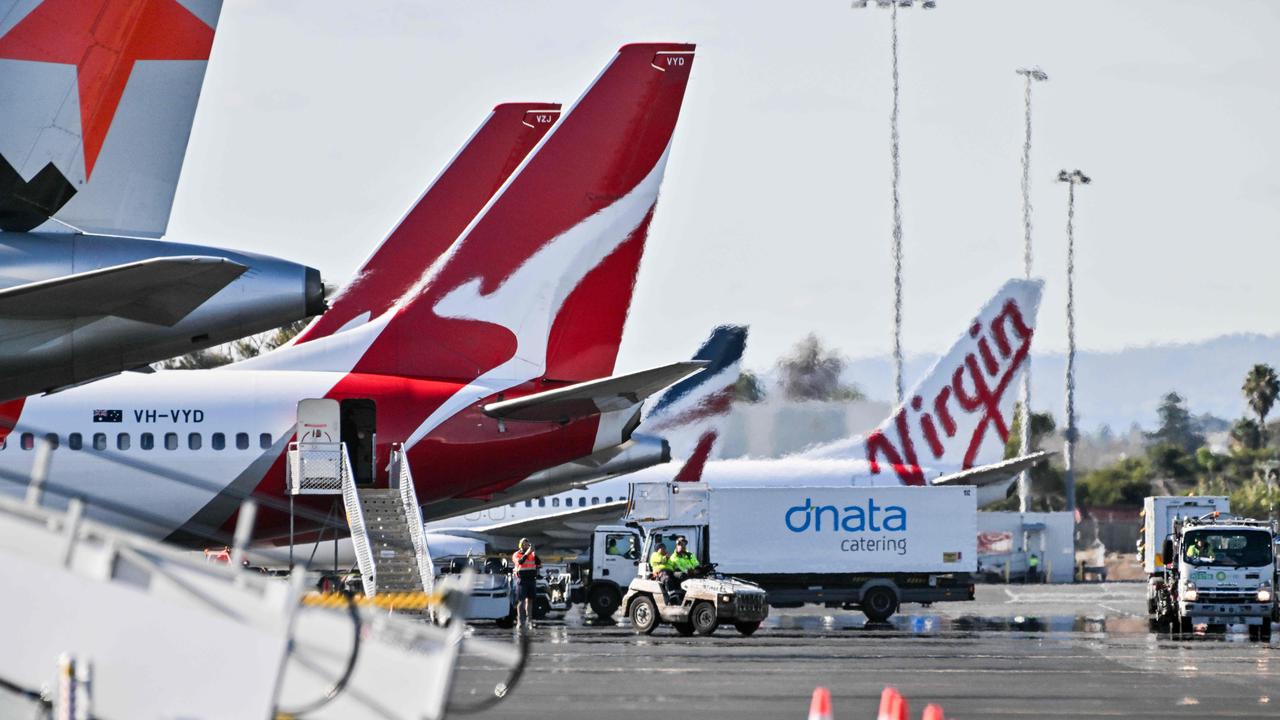Experts say India travel ban is not the right way to deal with spike in hotel quarantine cases
A concerning spike in Australia’s hotel quarantine has been revealed but experts say the India travel ban is not the right way to deal with the problem.

Data shows that Australia’s hotel quarantine system is under serious pressure with an “enhanced” risk of a leak as positive cases spike.
Data analyst Anthony Macali, founder of COVID Live, said numbers of positive cases in quarantine in NSW in particular were putting the state at a higher risk of a breach.
Mr Macali has looked at hotel quarantine in each state and found that leaks often occurred in NSW when positive cases reached a seven-day average of around six cases a day.
“If there are only one or two positive cases then quarantine seems easy to manage and there’s less chance of a leak,” he told news.com.au.
“But if there are six or seven, this tests the system then there is an enhanced risk of breach.
“Today we are hitting nine or 10 a day, we’ve never hit that level before.
“It doesn’t necessarily mean you will get a breach but you should obviously be on high alert and it’s testing the limits because we have never taken this many positive cases from overseas before.”
It’s a similar story in the Northern Territory. Its Howard Springs quarantine facility hasn’t had any breaches in six months since it opened, but Mr Macali said it was previously only dealing with one or two positive cases a day.
“In the last two weeks this has jumped from an average of under one, to almost six cases a day, which is huge. It’s a 600 per cent increase,” he said.
Interestingly, Mr Macali said the number of positive cases in Western Australia’s quarantine system had not changed much.
“Western Australia has always had about two or three cases a day and that hasn’t changed the entire time even though (WA Premier) Mark McGowan is saying there are more cases from India, positive cases in WA haven’t deviated too much, unlike other states.”
RELATED: India’s latest grim coronavirus milestone
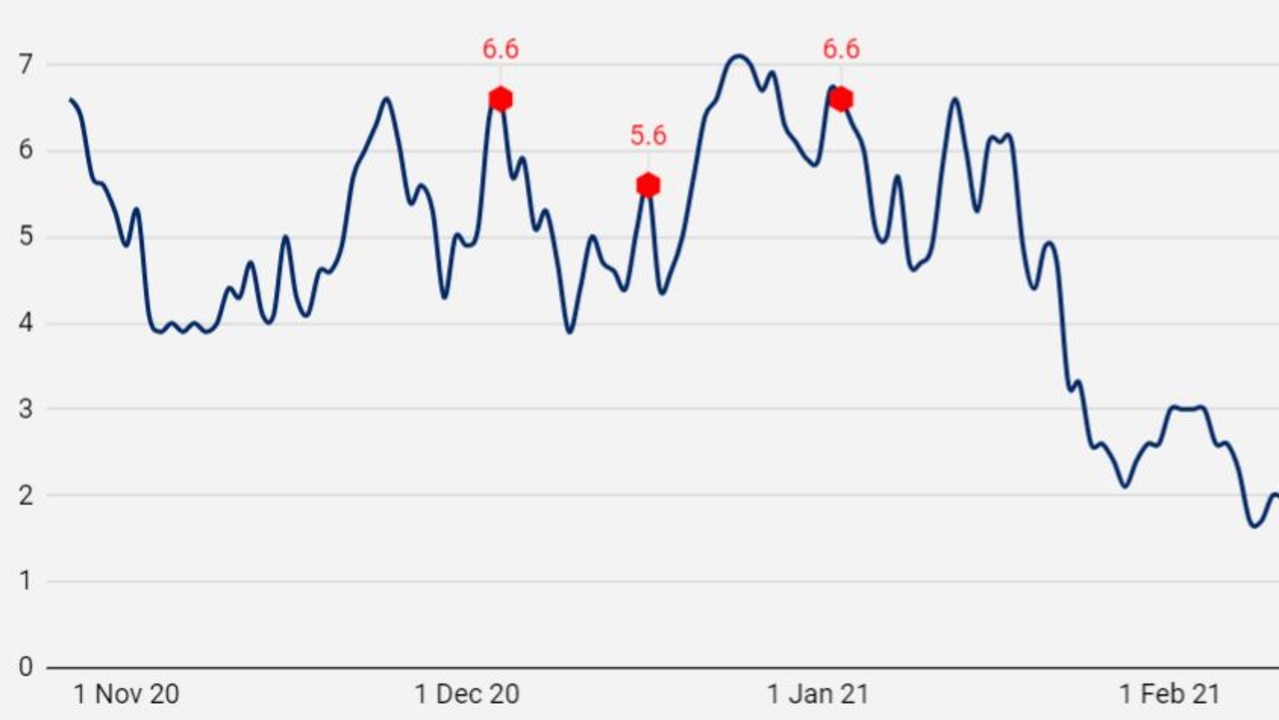
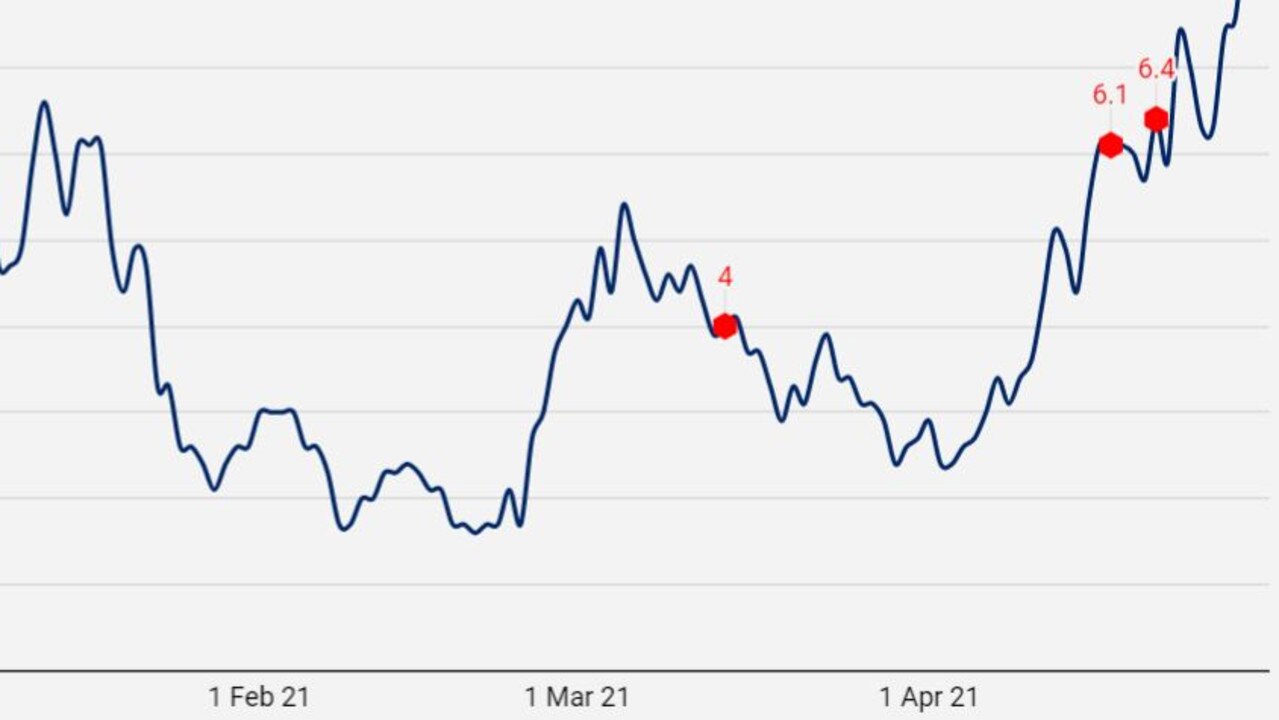
India flight ban ‘not ethical’
The Morrison government is facing criticism for suspending flights from India for two weeks amid a devastating coronavirus outbreak in the country. Australians who return from India illegally could be sentenced to five years in jail, a $66,000 fine or both.
Mr McGowan was prominent in calling for a suspension in flights and said 40 per cent of cases in WA quarantine had been in India in the past month, up from 11 per cent the previous month.
Unlike New Zealand, which published data about the origin of its cases when it banned flights from India on April 11, Australian authorities have not published a breakdown of where cases are coming from and Mr Macali said it was difficult to know how many of the cases were from India.
However, NSW authorities have noted an increase in the number of positive cases in travellers returning from India in a weekly report, although figures will not be available for at least a week.
University of NSW Professor Mary-Louise McLaws, a World Health Organisation adviser, agreed the figures show a spike in coronavirus cases in hotel quarantine in April but she believes the India ban was unethical and “very sad”.
“I despair at what we’ve become. When are we going to realise that every single Australian life is important, not just those on our soil?” she said.
“If we congratulate ourselves on being multicultural, when people go home to deal with important family issues or find themselves stranded, why is their safety less important than those in Australia?
“Australia has to make every Australian feel loved and cared for, not just those who are here, isn’t that why we have embassies?”
RELATED: Scott Morrison defends India flight ban
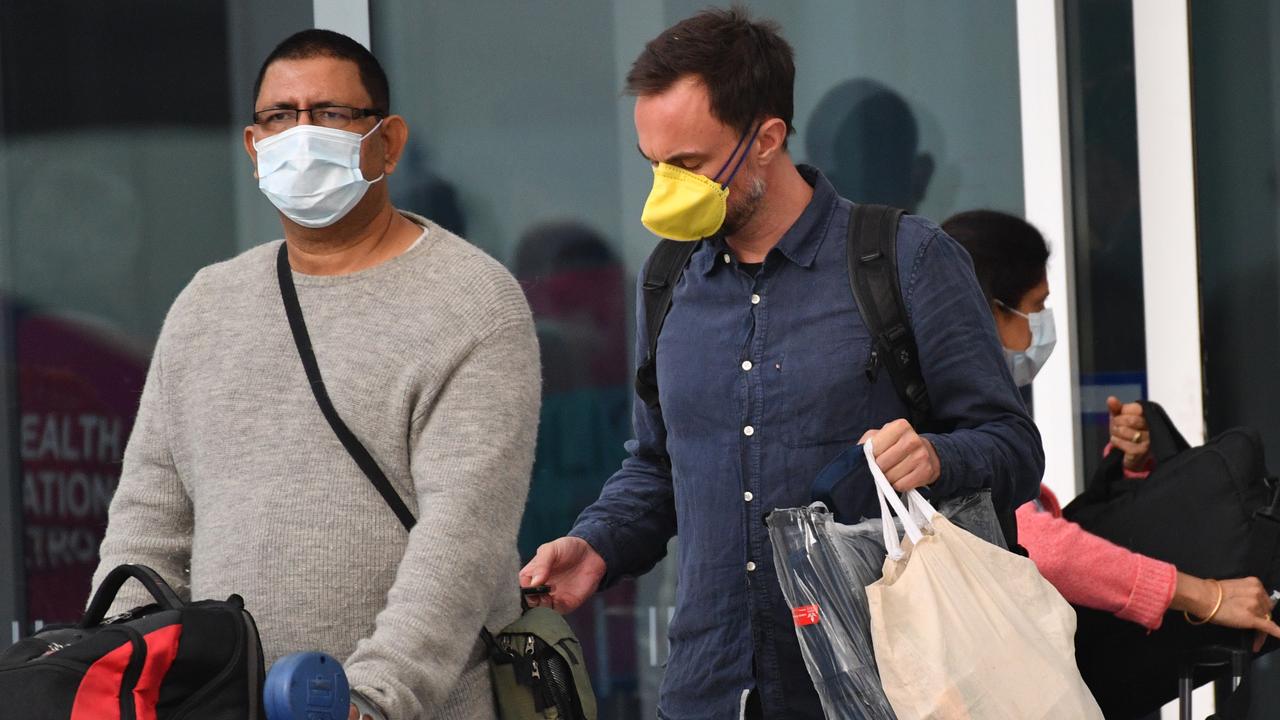
Sky News host Andrew Bolt has said the India ban “stinks of racism” and Australian Medical Association WA President, Dr Andrew Miller told Today it was “absolutely unacceptable and outrageous”.
On Monday, Nationals MP Matt Canavan became the first government MP to slam the ban.
“We should be helping Aussies in India return not jailing them. Let’s fix our quarantine system rather than leave our fellow Australians stranded,” he tweeted.
About 9000 Australians are registered as being in India at the moment with 650 registered as vulnerable.
Prime Minister Scott Morrison has defended the India ban and said the decision was made based on advice from chief medical officer Paul Kelly.
Prof Kelly told the ABC today the government had set a limit of 2 per cent positivity rates for overseas arrivals, and that Australia had been well below that for a year except for two occasions – the arrivals from India and previously those returning from Papua New Guinea.
He has also noted criminal punishment was a separate part of Australia’s Biosecurity Act and health authorities had not been asked to advise on that section.
“Let’s be very clear, we were asked for public health advice on the nature of threat, how long (a measure) was needed, that was the advice given,” he told Sky News.
“We weren’t asked about penalties.
“I’m an adviser, I don’t make decisions for the government.”
But Prof McLaws rejected Prof Kelly’s comments that he was not responsible for setting the penalty.
“I know that Professor Paul Kelly is using public health law to say that he’s not responsible for the penalty but when you make decisions, you are basically accepting the penalty,” she said.
She also questioned why authorities had set a cap on positive cases in overseas arrivals given the second wave in Europe last year.
“England was out of control and so was the US, so I’m not sure why they thought they had to put a cap on it – given what they are doing is leaving Australians stranded in a dangerous position.
“Would we do this in wartime and leave combatants stranded in a dangerous position?”.
Hotel quarantine should be improved
Prof McLaws said she understood the Morrison government was trying to keep the country safe but was doing this using a “blunt instrument” by just banning anyone from coming in.
“There are other ways around it and better ways of quarantine,” she said.
Prof McLaws said governments had 12 months to plan for this, and rather than stopping people from coming into the country, improvements to hotel quarantine should be made.
She believes people in hotel quarantine should be separated into low and high risk groups, tested every second day and anyone found to be positive should be moved to a “proxy hospital”. All hotels should also have high air flow change and good air pressure to make it less likely the virus would spread.
“We have an obligation to keep people safe in quarantine,” Prof McLaws said.
There are also people who work in the quarantine system, such as cleaners and security, who have not received both doses of the vaccine yet.
“I keep hearing about quarantine staff who have still only had one dose, we are in week nine or 10 of the rollout, and the second does of the Pfizer vaccine can be given after three weeks, so why haven’t these staff been protected? That’s truly unethical.”
Prof McLaws said she understood the statistics but “outbreak control is not just about statistics”.
“We make really difficult decisions, such as on restrictions for everyone to stay inside, but we don’t do unethical things, we treat everybody the same and this is not treating everyone the same,” she said.
“While numbers may have spiked dramatically in April we still have an ethical obligation of receiving Australians and it has to be done in a way that is safe.”



